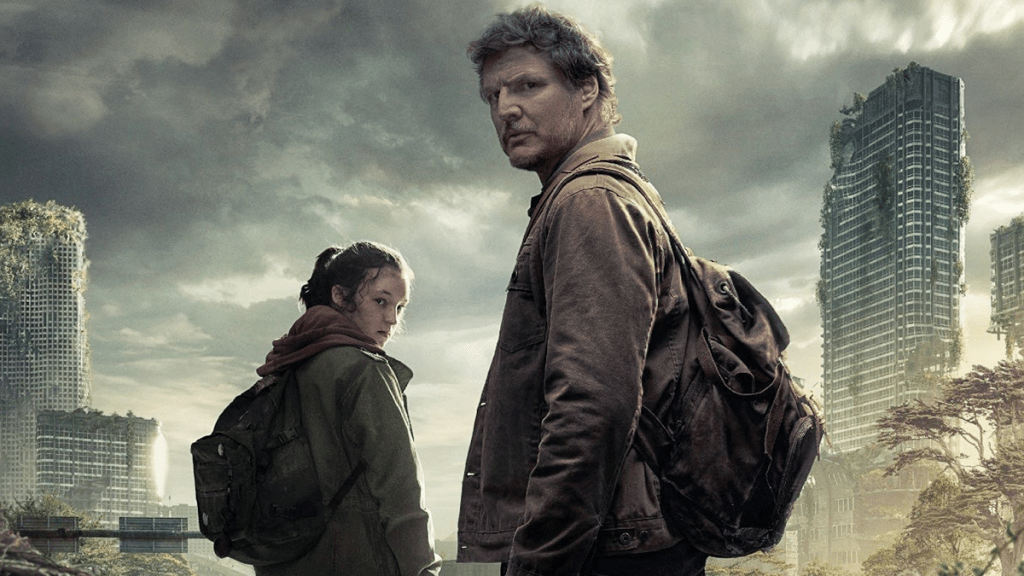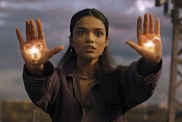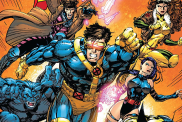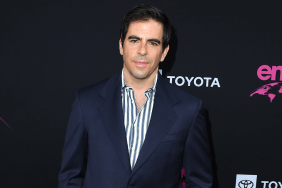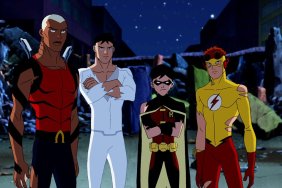As a fan of the video game, the first season of The Last of Us left me pleasantly surprised. The series has some problems, and I’m confident it would have made a much better two-hour movie, but there are a lot of positives to its episodic format as well. So let’s take a look at what worked and what didn’t over the course of its first season.
What Worked

Joel and Ellie
Initially, I was frustrated when the show cast Joel and Ellie aside to needlessly shine the light on side characters that offered nothing to the overarching narrative. Once The Last of Us slowed down long enough to give its primary protagonists screen time, it really found its footing. Pedro Pascal knocked it out of the park from an acting perspective, even if his iteration of Joel pales against his video game counterpart. Bella Ramsey was a mixed bag, sometimes strong and resourceful, other times just plain annoying. Still, she had her high points, including a brutal confrontation with David, the friendly cannibal. Her chemistry with Pascal was definitely on point. Good thing, too, because their relationship is the most crucial element of the show.

Infected
Season 1 ditched action and spectacle in favor of quiet character moments, for better or worse. Still, viewers were treated to some beautifully rendered violence when the action hit. Episode 5, the best of the bunch, gave us the most robust bit of action when a swarm of infected, led by a Bloater, attacked Kathleen’s militia. I dug the Clickers and didn’t mind the new spore-less take on the mindless zombie drones. I wanted more (see below), but at least the show had the good sense to stick with the original designs.

Henry and Sam
Too much time was spent hanging with pointless side characters — did we need to see more of David or Kathleen? Still, one set worked remarkably well: Henry and Sam. The two brothers run into Joel and Ellie, leading to a series of misadventures that takes them through Kansas City’s tunnels, where they discover an abandoned community, and into a rundown town where they encounter Kathleen and the Bloater mentioned above. Their story leads to the most shocking death of the entire season, a bit I’ll likely never forget.

Sarah
The opening episode did an excellent job of establishing the series’ tone. We see Outbreak Day through Sarah’s young eyes and watch the world burn. Planes fall out of the sky, homes burn in the distance, people run amok, and cars crowd the interstate. More pivotally, we see Sarah’s gruesome death at the hands of a frightened soldier. This moment pays off in the final episode during Joel’s unhinged rampage through the hospital. Had we not cared about Sarah, the series likely would have failed to gain much emotional traction with viewers. Nico Parker was fantastic and managed to mold Sarah into a likable character with minimal screen time. Well done.

Character Payoffs
In my opinion, the second half of the season works much better than the first and offers a handful of satisfying, if not harrowing, character payoffs. Ellie’s rage finally surfaces during her battle with David; we watch in horror as she unleashes her pent-up aggression and hacks the man to death. Later, we see Joel unleash hell on the Fireflies to save Ellie. He kills dozens, including Marlene, and escapes with his surrogate daughter cradled in his arms. These beats hit home thanks to solid direction, terrific acting, and a script that takes the time to set them up. Seriously, this is Game of Thrones Season 1-5 level plotting.
What Didn’t Work

Side Characters
For a season that skipped far too many of the game’s epic sequences, it was weird to see so much time devoted to a handful of pointless side characters. I didn’t mind the prologue with John Hannah in Episode 1. Still, Episode 2 spends at least 30 minutes following a professor of mycology as she learns about the cordyceps outbreak and implores a soldier to start bombing cities. Later, in Episode 3, we ditch Joel and Ellie to spend an hour with Frank and Bill, two men who fall in love, pick strawberries for several years, and eventually kill themselves. We also wander around with Kathleen for a spell and then bum around with Ellie and her doomed friend Riley for an entire episode.
None of these segments are bad, but they screw with the pacing and feel more indulgent than necessary. Moreover, they detract from Joel and Ellie’s budding relationship, which is the most crucial element of the show. Did we need to see how the outbreak started, especially since Joel explained what happened later? Did we need to spend so much time with Frank and Bill when their contribution to the plot amounts to little more than a letter? Was it necessary to learn about Kathleen’s backstory considering her abrupt death? Did we need an entire episode devoted to a DLC storyline? Did we need to see David brutally slap around a young girl?
Many of these beats aren’t experienced by our heroes and contribute nothing to their journey. Witnessing everything from Joel or Ellie’s eyes would have been more effective. Imagine if we only saw Kathleen from Joel’s perspective, leaving us questioning Henry’s actions. What if Joel spent much time telling Ellie about Frank and Bill only to find a letter nestled alongside their corpses?
I imagine someone will edit all nine episodes to follow the game flow more closely, which will work better.

Lack of Action
I understand that you can’t feature zombie action in every episode. Still, The Last of Us Season 1 ignores the infected so much that they cease to be a threat. Moreover, Joel and Ellie bump into many people living happily in this apocalypse. They walk from Boston to Salt Lake City and only run into a pair of Clickers, a Bloater, and some infected. In fact, this iteration of the fungus is connected via a network, which should make them easier to eliminate, right?
In the game, the infected appear to a nauseating degree, which makes Ellie’s mission feel more significant. In the show, it’s not unreasonable to suggest Joel and Ellie could find a comfortable house somewhere in the country and live like kings. So why not stay with Tommy in his well-organized communal?
The Last of Us video game featured numerous character beats, leading to superb set pieces. Ellie and Riley’s sojourn in the mall culminated in a wild chase through the corridors, a massive hoard of infected hot on their tails. When Joel and Ellie arrive in SLC, they encounter obstacles that eventually lead them to the Fireflies. In short, the character drama meshed well with the action to deliver a satisfying, albeit bleak, gaming experience.

Final Thoughts
Overall, The Last of Us Season 1 was a satisfying television experience worth watching whether or not you’ve played the game. I have my issues with some of the creative choices made by the showrunners, but there’s still plenty to admire here. Regardless, it’s the best video game adaptation to date. That’s not a high bar to leap over, but The Last of Us clears the competition by a wide margin. It’ll be exciting to see what they learn and incorporate into Season 2!
